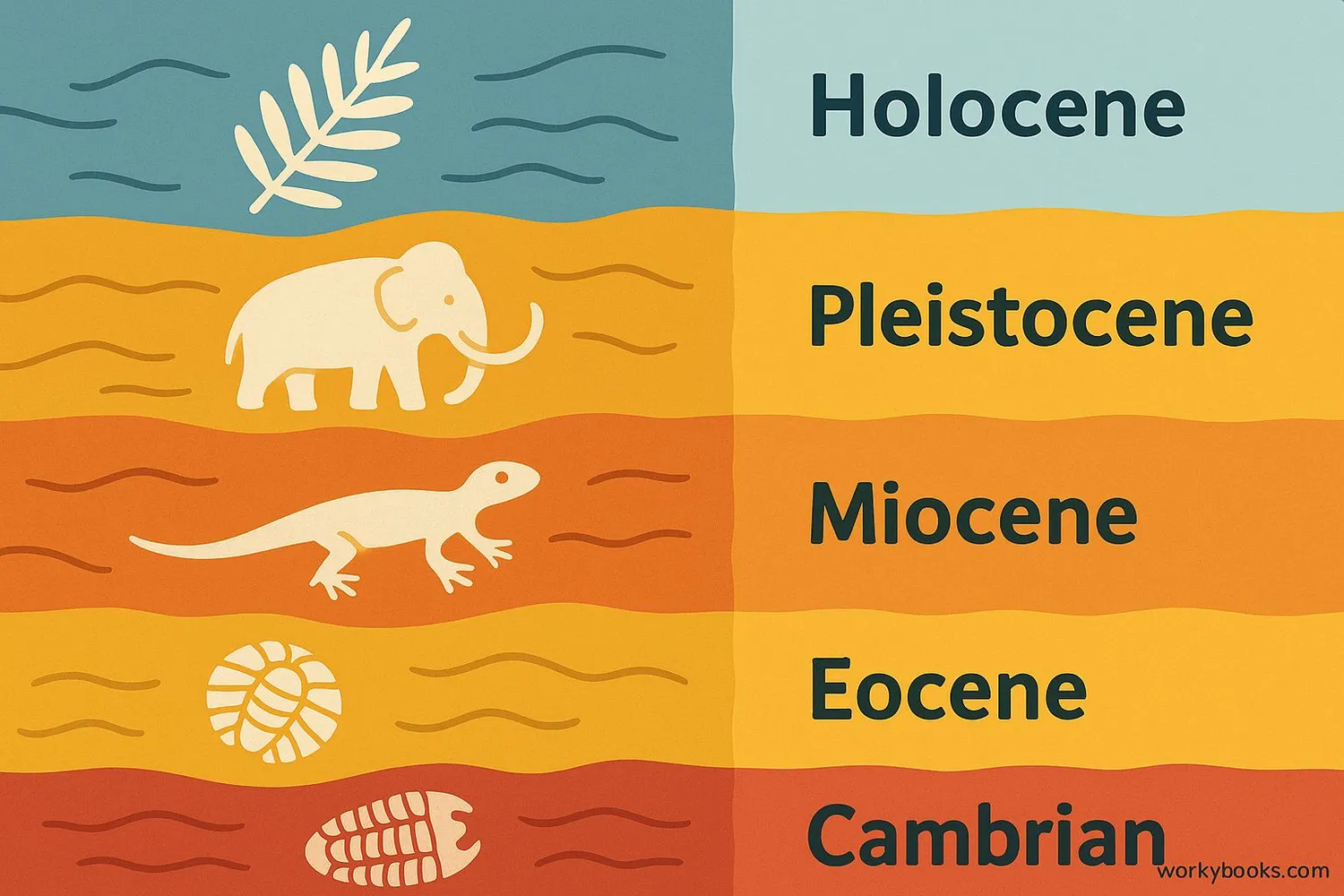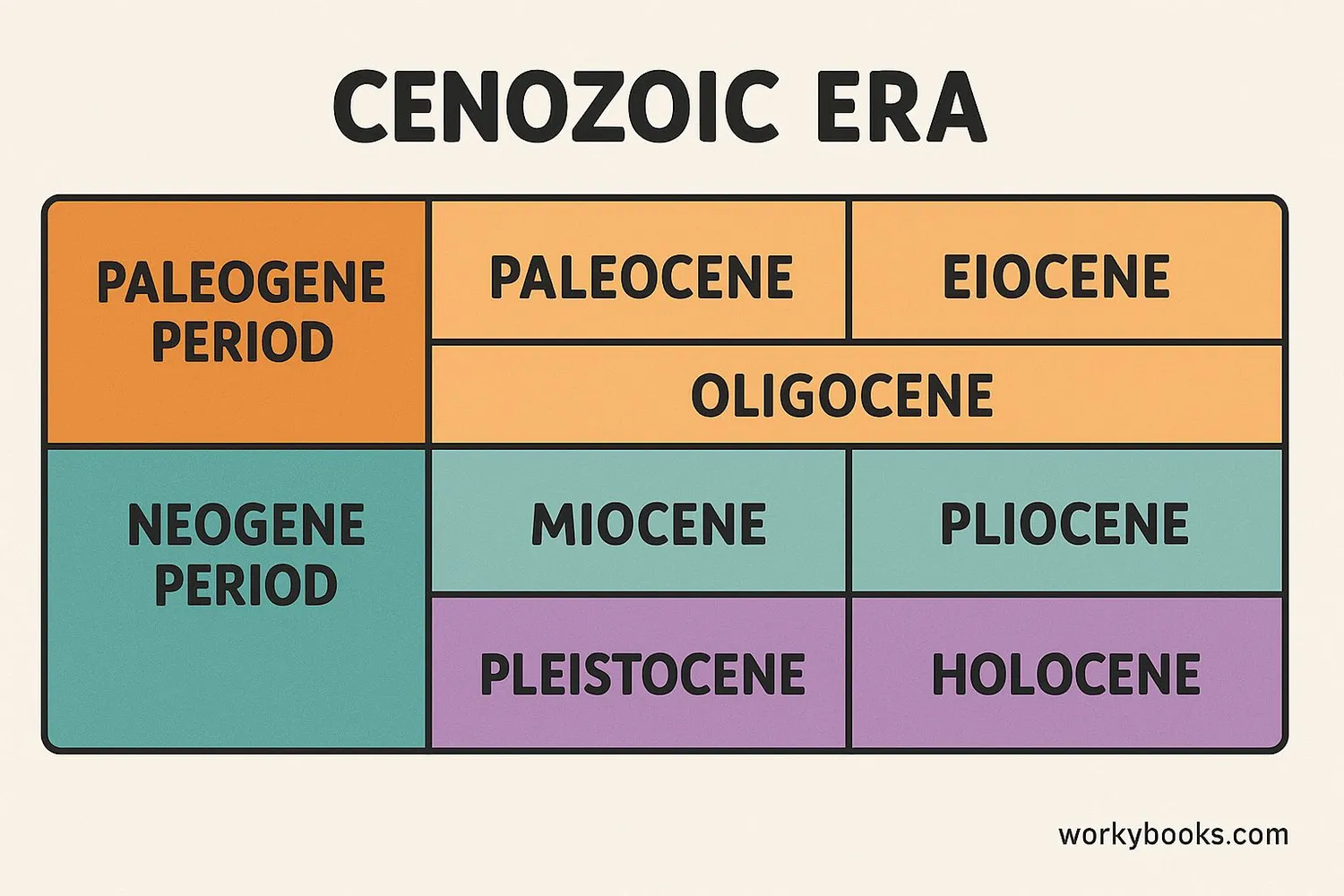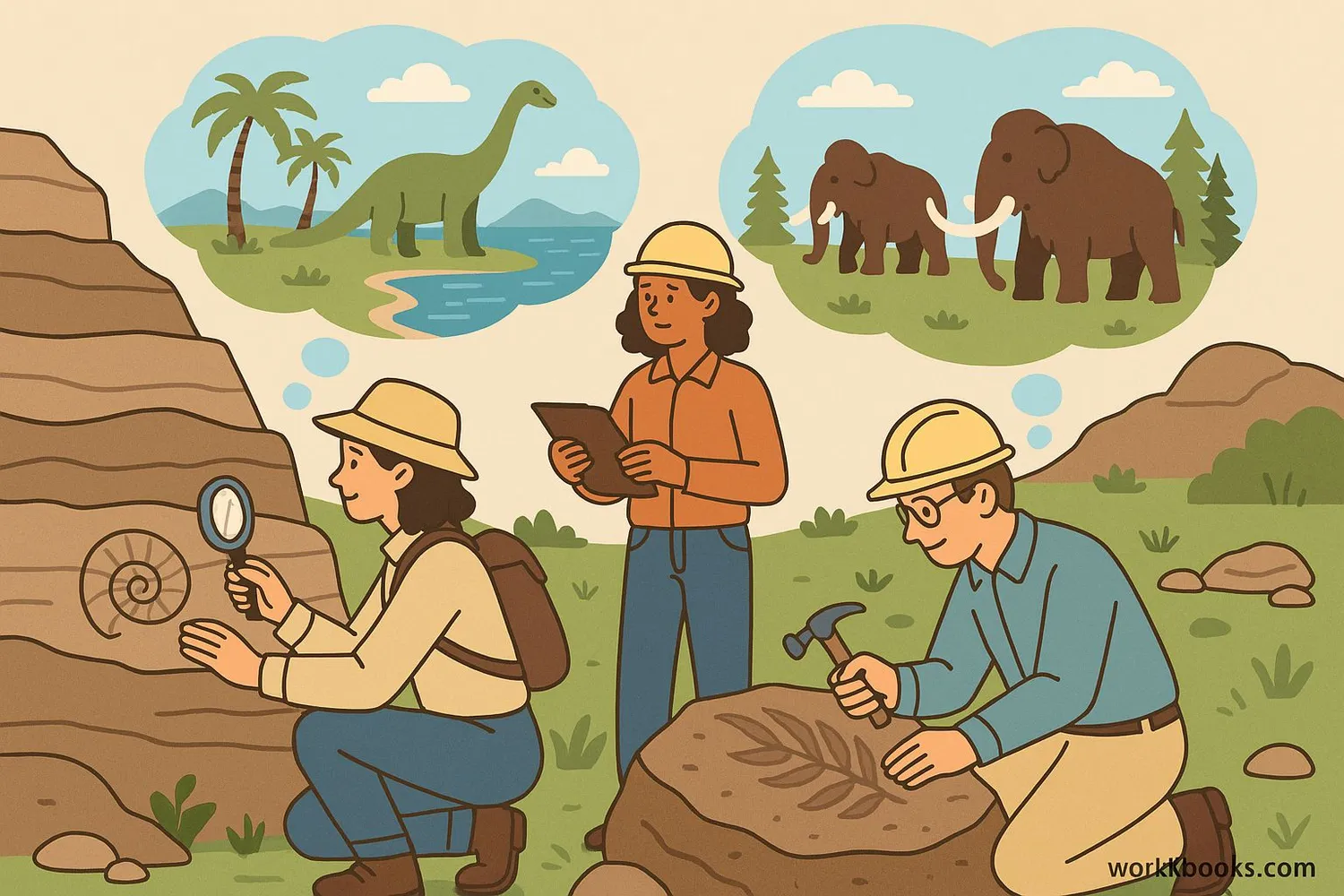Epochs - Definition, Examples, Quiz, FAQ, Trivia
Discover how scientists divide Earth's history into manageable time periods
What is an Epoch?

An epoch is a unit of geological time that is longer than an age but shorter than a period. Epochs are part of the geologic time scale, which scientists use to divide Earth's 4.6-billion-year history into manageable chunks.
Think of Earth's history like a giant book. Epochs would be like chapters in that book, helping us organize and understand the story of our planet. Each epoch has unique characteristics based on the fossil record, rock layers, and major events that happened during that time.
Did You Know?
We currently live in the Holocene epoch, which began about 11,700 years ago after the last major ice age!
The Geologic Time Scale

The geologic time scale is like a calendar for Earth's history. It's divided into large chunks of time called eons, which are broken down into eras, then periods, and finally epochs. Here's how it works:
Eon
The largest time unit (e.g., Phanerozoic)
Era
Divides eons (e.g., Cenozoic)
Period
Divides eras (e.g., Neogene)
Epoch
Divides periods (e.g., Miocene)
Age
The smallest time unit
The Cenozoic Era (the age of mammals) is divided into three periods: Paleogene, Neogene, and Quaternary. Each of these periods contains several epochs:
• Paleogene: Paleocene, Eocene, Oligocene
• Neogene: Miocene, Pliocene
• Quaternary: Pleistocene, Holocene
Naming Epochs
Many epoch names come from Greek words that describe characteristics of that time. For example, "Pliocene" means "more recent," and "Miocene" means "less recent."
Why Epochs Matter

Geological epochs help scientists organize Earth's complex history and understand how our planet has changed over billions of years. Here's why they're important:
Organization
Helps categorize Earth's 4.6-billion-year history
Research
Provides framework for studying fossils and rock layers
Understanding Change
Shows how climate and life forms have evolved
By studying different epochs, scientists can:
• Track how climate has changed over millions of years
• Understand how life forms have evolved and gone extinct
• Predict how Earth might change in the future
• Locate important resources like oil and minerals
Epochs provide a common language that geologists and paleontologists around the world use to communicate about Earth's history.
Modern Discussion
Some scientists suggest we've entered a new epoch called the Anthropocene, where humans are the dominant force changing Earth's systems.
Test Your Knowledge
How much have you learned about geological epochs? Take this quiz to find out!
Frequently Asked Questions
Here are answers to common questions about geological epochs:
Interesting Geological Facts
Discover amazing facts about geological time and epochs:
Vastness of Time
If Earth's entire history were compressed into 24 hours, humans would appear in the last second before midnight!
Fossil Clocks
Index fossils are species that existed for short periods but were widespread. They help scientists date rock layers accurately.
Human Time
Modern humans have existed for only about 0.004% of Earth's history—a very short time in geological terms!
Rock Records
The oldest known rocks on Earth are about 4 billion years old, found in Canada's Northwest Territories.





